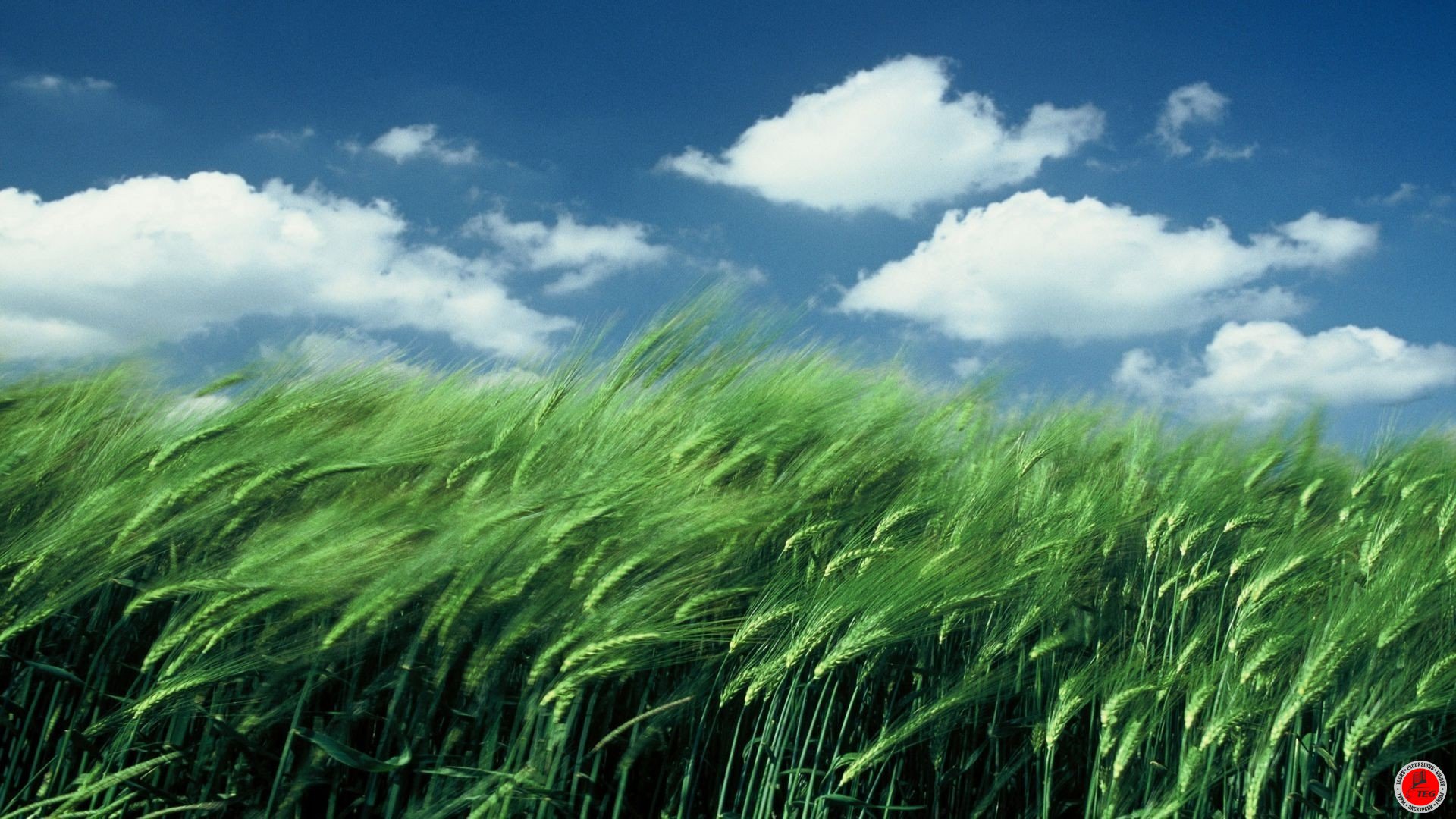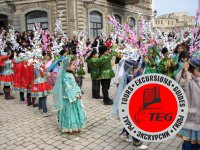
16-05-2025, 11:52
Today, we celebrate "Yel Chershenbesi."
🌬️ Yel Chershenbesi — The Wind Awakening Tuesday Before Novruz in Azerbaijan
As Novruz Bayram, one of the oldest and most cherished holidays in Azerbaijan, approaches, Azerbaijani people begin a series of ancient and meaningful celebrations. One of the most symbolic days is Yel Chershenbesi, known as “Windy Tuesday” or “The Tuesday When the Wind Awakens.”
Celebrated the third Tuesday before Novruz, this special day honors the element of air (wind) — a sacred force in Azerbaijani culture. The wind is believed to awaken water, fire, earth, and all of nature, bringing the promise of spring and new life.
🌱 What is Yel Chershenbesi?
The Third Sacred Tuesday Before Novruz
In Azerbaijan, the four Tuesdays before Novruz each symbolize an element of nature:
Su Chershenbesi – Water Tuesday
Od Chershenbesi – Fire Tuesday
Yel Chershenbesi – Wind Tuesday (third)
Torpag Chershenbesi – Earth Tuesday
Yel Chershenbesi marks the moment when spring truly begins to stir. Winds awaken tree buds, sunshine warms the air, and the fields prepare for planting. It is a time of purification, preparation, and gratitude to the forces of nature.
🌬️ Legends and Beliefs of Wind Tuesday
Wind as a Sacred Force
Azerbaijanis say: "Yel əsdirəni söyməzlər" — "One must not curse the wind." In ancient times, wind held divine significance, associated with life, guidance, and purification.
On this day, all four mythical winds are believed to break free from the "black pitcher":
Ag-yel (White Wind) – dressed in white
Gara-yel (Black Wind) – in black
Khazri (North Wind) – in blue
Gilavar (South Wind) – in red
Each wind has a purpose in cleansing the earth and guiding the seasons. The powerful wind spirit Yel Baba ("Father of the Winds") is imagined as a kind old man who helps lost travelers by sending them a magic thread that leads them home.
🔥 Rituals and Traditions of Yel Chershenbesi
Bonfires for Cleansing
The central ritual of Wind Tuesday is the lighting of bonfires in every yard, street, and open space. As tradition holds:
Jumping over the flames symbolizes leaving behind misfortunes and negativity
The fire “burns away” the hardships of the past year
Ashes are scattered afterward to the wind — a sign that sorrows have been carried away
💡 Important: It's forbidden to pour water on the bonfire — the flame must go out on its own as a sacred sign of renewal.
House Cleaning & Airing Out
Mattresses, quilts, and rugs are taken outside
Homes are filled with fresh air
This is symbolic of welcoming spring winds and purifying the household
🍚 Traditional Dishes for Wind Tuesday
No Azerbaijani celebration is complete without a festive table. On Yel Chershenbesi, it is customary to prepare light, “airy” dishes that honor the wind's spirit:
Südlü plov – rice pilaf cooked with milk
Bulgur pilaf – fluffy and wholesome
Semeni halva – made from the juice of sprouted wheat, symbolizing rebirth
Tables are decorated with dried fruits, nuts, and a sprouted wheat “samani” wrapped in a red ribbon, symbolizing life and spring
🌆 Baku — The City of Winds
It’s no coincidence that Baku, Azerbaijan’s capital, is nicknamed the “City of Winds.” The origins of the city’s name may be tied to both fire and wind:
One theory traces it to Atshi-Baguan – "Lights of Baguan," referencing ancient Zoroastrian fire worship
Another, Badi-Kuba, translates to “Wind Strike” or “Windy City”, highlighting the ever-present breeze across the Absheron Peninsula
During Yel Chershenbesi, Baku’s windy streets seem to come alive with symbolism, reminding locals and tourists alike of the city’s deep connection to nature and ancient traditions.
✨ Why You Should Experience Yel Chershenbesi in Azerbaijan
Whether you're a lover of culture, food, or folklore, visiting Azerbaijan during the pre-Novruz celebrations offers a truly unique and magical experience:
Witness bonfires and traditional songs in local courtyards
Savor rare dishes prepared only for this occasion
Explore the spiritual roots of wind and fire worship
Feel the energy of a nation awakening to spring and renewal
🧭 Plan Your Trip for Novruz Bayram
Best time to visit: Early to mid-March (Tuesdays before March 20-21)
Top places to experience Yel Chershenbesi:
Baku (Old City celebrations)
Sheki, Ganja, Nakhchivan, and rural villages where traditions are fully preserved
Local guesthouses and cultural tours often include festive meals and fire-jumping events
Are you interested in Today, we celebrate "Yel Chershenbesi."? Then contact us, and we will answer all your questions regarding this service.
Phone numbers: +99450-208-22-86 (Whatsapp) +99455-208-22-86 (Viber)
Email: [email protected]
